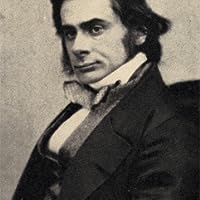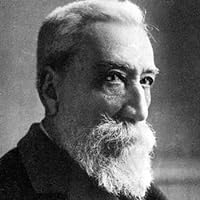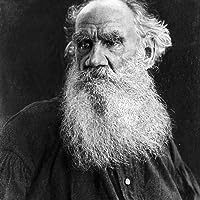Jurisprudence Quotes
Quotes tagged as "jurisprudence"
Showing 1-23 of 23

“The science, the art, the jurisprudence, the chief political and social theories, of the modern world have grown out of Greece and Rome—not by favour of, but in the teeth of, the fundamental teachings of early Christianity, to which science, art, and any serious occupation with the things of this world were alike despicable.”
― Agnosticism and Christianity and Other Essays
― Agnosticism and Christianity and Other Essays

“Today, no less than five Supreme Court justices are on record, either through their opinions or speeches (or both), that they will consult foreign law and foreign-court rulings for guidance in certain circumstances. Of course, policymakers are free to consult whatever they want, but not justices. They're limited to the Constitution and the law.”
―
―

“The first requirement of a sound body of law is, that it should correspond with the actual feelings and demands of the community, whether right or wrong.”
― The Common Law
― The Common Law

“Der Mensch ist entweder im Stande, rechtswidrig zu handeln oder er ist es nicht, denn dazwischen gibt es nichts Drittes und Mittleres. Durch diese Fähigkeit wird er strafbar, durch seine Eigenschaft der Strafbarkeit wird er Rechtsperson, und als Rechtsperson hat er teil an der überpersönlichen Wohltat des Rechts.”
― The Man Without Qualities
― The Man Without Qualities

“His claim to Mars is lawyers' hogwash; as a lawyer myself I need not respect it.”
― Stranger in a Strange Land
― Stranger in a Strange Land

“The fact that the Constitution is sufficiently open-ended to infuriate all Americans almost equally is part of its enduring genius.”
―
―

“The Framers were no more interested in binding future Americans to a set of divinely inspired commandments than any of us would wish to be bound by them.”
―
―

“Their quarry had been cornered in his defenses and their bloodlust was such that they were likely to pay top Julep to watch him escape, so that he might be brutalized and killed before their very eyes, as this was much more gratifying to them than simply watching justice be enacted. They, too, understood that societal constructs for justice were moderate gratification, at best, as they were empty and subject to contradictions and compromises steeped in moral relativism and an unconditional dependence upon overblown semantics that made the law a mockery of itself. As for the ideologies that these hollow systems of jurisprudence sought to define and uphold: these could easily be subjugated through a meticulous analysis of the trivial components of one statute or another. The rule of law had failed them. What the people wanted, in its stead, was rather simple: moral absolutes. Good versus evil. And evil was not to be simply prevailed over. Evil was to be dominated and effectively eliminated, because as long as it was able to while away the time somewhere—in some sweaty prison cell, far away, staring out the barred window with a wry smile, as it plotted its next offensive on the Common Good, a sense of wholeness could not be achieved.”
― Don't Forget to Breathe
― Don't Forget to Breathe

“Arbitrary governing hath no alliance with God.”
― Lex, Rex, or the Law and the Prince: A Dispute for the Just Prerogative of King and People
― Lex, Rex, or the Law and the Prince: A Dispute for the Just Prerogative of King and People

“Start with the observation that American law is not designed to catch and punish every instance of illegal conduct. Nothing short of a totalitarian state could do that. It is designed to prosecute persons when there is a reasonable basis for believing they have committed a crime, and then to convict them when there is no reasonable doubt that they are guilty.”
― Flagrant Conduct: The Story of Lawrence v. Texas
― Flagrant Conduct: The Story of Lawrence v. Texas

“[Justice] Murphy... who ruled against the state [anti-sodomy] law... didn't see why the Supreme Court had to dwell on the historical background of sodomy laws [before striking them down]. All one really had to know to decide the case, he reasoned, was that Texas and its legions of moralizers let people have sex with animals. End of story.”
― Flagrant Conduct: The Story of Lawrence v. Texas
― Flagrant Conduct: The Story of Lawrence v. Texas

“Naturally there was the notion of private property as a pragmatic concept, for individuals or groups have a proclivity to tend to their own possessions with greater care and reverence than they would to common property...in such cases, the notion of ownership would underscore a relationship existing between distinct people, rather than a legal association between a person and that which is said to be possessed, which is to say that ownership was, in its strictest definition, the societal distinction between the owner and the non-owner with respect to the property in question. Beyond this, the concept of ownership varied further from society-to-society according to their respective derivations of natural law, legal positivism and legal realism. Some societies—the indigenous Itako tribes...for example—railed against their governments’ initiatives for private ownership in favor of maintaining equal access to available resources (in the case of the Itako, this was due primarily to the fact that theirs were kin-based tribes whose membership sought to live communally). All the same, even this notion of common possession seemed to me rather arrogant, for the necessitated existence of a public domain was rooted in the shared human dominance over the objects or organisms in question. And so, in my dizzying contemplation, I began to yearn for a greater law that stretched to vast limits beyond that which governed humanity alone. The voice in my mind spoke earnestly of the need for a unifying jurisprudence which could preside over all of Nature’s manifestations in a manner either probabilistically fair or mathematically arbitrary. And perhaps, still, this would not be enough.”
― Only the Deplorable
― Only the Deplorable
“Practicing law in a general practice litigation firm can quickly sap an attorney’s enthusiasm for life as well as their inner will to pursue their line of trade that they invested years of schooling qualifying to perform. In phone calls, an attorney listens to clients scream, cry, and curse, make wild accusations, and threatening to harm other people. Because the client is paying the firm, they feel entitled to act obscenely.”
― Dead Toad Scrolls
― Dead Toad Scrolls

“The Constitution created a framework, not a Ouija board, precisely because the Framers understood that prospect of a nation ruled for centuries by dead prophets would be the very opposite of freedom.”
―
―

“Oftentimes have I heard you speak of one who commits a wrong as though he were not one of you, but a stranger unto you and an intruder upon your world.
But I say that even as the holy and the righteous cannot rise beyond the highest which is in each one of you,
So the wicked and the weak cannot fall lower than the lowest which is in you also.
And as a single leaf turns not yellow but with the silent knowledge of the whole tree,
So the wrong-doer cannot do wrong without the hidden will of you all.
Like a procession you walk together towards your god-self.
You are the way and the wayfarers.
And when one of you falls down he falls for those behind him, a caution against the stumbling stone.
Ay, and he falls for those ahead of him, who though faster and surer of foot, yet removed not the stumbling stone.”
―
But I say that even as the holy and the righteous cannot rise beyond the highest which is in each one of you,
So the wicked and the weak cannot fall lower than the lowest which is in you also.
And as a single leaf turns not yellow but with the silent knowledge of the whole tree,
So the wrong-doer cannot do wrong without the hidden will of you all.
Like a procession you walk together towards your god-self.
You are the way and the wayfarers.
And when one of you falls down he falls for those behind him, a caution against the stumbling stone.
Ay, and he falls for those ahead of him, who though faster and surer of foot, yet removed not the stumbling stone.”
―

“Mme Therbouche: Ah oui, qu’avez-vous fait jusqu’à présent pour la morale ?
Diderot: (sans vergogne). Mais... j’ai offert mon exemple.”
― Le Libertin
Diderot: (sans vergogne). Mais... j’ai offert mon exemple.”
― Le Libertin

“(Please forgive us, reader. We have once more gone astray with this rightist opportunism—this concept of "guilt," and of the guilty or innocent. It has, after all, been explained to us that the heart of the matter is not personal guilt, but social danger. One can imprison an innocent person if he is socially hostile. And one can release a guilty man if he is socially friendly. But lacking legal training, we can be forgiven, for the 1926 [Soviet Criminal] Code, according to which, my good fellow, we lived for twenty-five years and more, was itself criticized for an "impermissible bourgeois approach," for an "insufficiently class-conscious approach," and for some kind of "bourgeois weighting of punishment in relation to the gravity of what had been committed.")”
― The Gulag Archipelago
― The Gulag Archipelago

“Ils y doivent travailler devant la majestueuse égalité des lois, qui interdit au riche comme au pauvre de coucher sous les ponts, de mendier dans les rues, et de voler du pain.”
― Le Lys rouge suivi de Le Jardin d'Épicure
― Le Lys rouge suivi de Le Jardin d'Épicure

“If the source of power lies neither in the physical nor in the moral qualities of him who possesses it, it must evidently be looked for elsewhere—in the relation to the people of the man who wields the power.
And that is how power is understood by the science of jurisprudence”
― War and Peace
And that is how power is understood by the science of jurisprudence”
― War and Peace

“Poor men have more to fear when the laws go down than the rich, for they are less able to protect themselves without law. You had all better shiver when you see a policeman rioting rather than putting down a riot, for he may well come after you next, or stand aside when someone else does.”
― The Guns of the South
― The Guns of the South
“The 'Constitution ' of a country operates as a 'Grund norm' from which all other laws emenate.”
― THE HANDBOOK OF JURISPRUDENCE
― THE HANDBOOK OF JURISPRUDENCE
All Quotes
|
My Quotes
|
Add A Quote
Browse By Tag
- Love Quotes 97k
- Life Quotes 75.5k
- Inspirational Quotes 72.5k
- Humor Quotes 43.5k
- Philosophy Quotes 29.5k
- Inspirational Quotes Quotes 27k
- God Quotes 26k
- Truth Quotes 23.5k
- Wisdom Quotes 23.5k
- Romance Quotes 23k
- Poetry Quotes 22k
- Death Quotes 20k
- Happiness Quotes 18.5k
- Life Lessons Quotes 18.5k
- Hope Quotes 18k
- Faith Quotes 18k
- Quotes Quotes 16.5k
- Inspiration Quotes 16.5k
- Spirituality Quotes 15k
- Religion Quotes 15k
- Motivational Quotes 15k
- Writing Quotes 14.5k
- Relationships Quotes 14.5k
- Life Quotes Quotes 14k
- Love Quotes Quotes 13.5k
- Success Quotes 13.5k
- Time Quotes 12.5k
- Motivation Quotes 12k
- Science Quotes 11.5k
- Knowledge Quotes 11k



